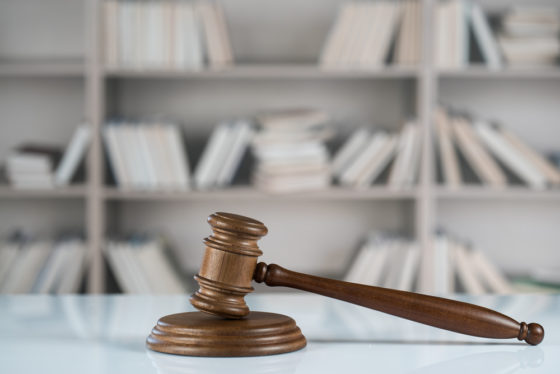Judges should not lay down the law to politicians

 Judges laying down the law to politicians? It should not be allowed, says columnist Syp Wynia.
Judges laying down the law to politicians? It should not be allowed, says columnist Syp Wynia.
Politicians are worried. Increasingly, the courts are telling them what to do. In the normal course of things, MPs make laws and ministers and junior ministers carry them out. The courts step in when people break these laws.
It no longer works like that. Last year the judges of the Council of State decided that Dutch nitrogen emissions policy does not comply with European guidelines. This meant the authorities were forced to tighten their environmental policies with far-reaching consequences for the building industry, agriculture and traffic.
Shortly before the Christmas break, the Supreme Court decided to back the Urgenda foundation, forcing parliament and the cabinet to take a number of measures to reduce pollution before the end of the year. The Hemweg coal fired power station in Amsterdam had already been closed down for the same reason.
Government by judges
These are just two recent examples of the courts finding in favour of private organisations, forcing politicians to do as they’re told. But this is not how the division of power between parliament, government and the judiciary is meant to be. And some MPs are now exploring the means to stop ‘a government of judges’ in which the court dictates to politicians.
MPs are right to worry. At the same time, it is MPs who have given the courts the means to lay down the law and judges are, very enthusiastically, using these laws for all they are worth.
The fact that politicians have given judges the right to decide in favour of campaign groups does not mean the judges are within their rights when they themselves don the activist’s hat, which is what happened in the Urgenda climate case.
General interest
A number of things have led up to this situation. Some 25 years ago the lower house of parliament changed the civil code in such a way that all foundations such as Urgenda have to do is to invoke ‘the general interest’ in order to petition the court for a ruling.
The Supreme Court decided that a stricter climate policy is a human right, according to the norms of the European Court of Human Rights in Strasbourg, and that the strict climate rules of a United Nations panel should therefore be adhered to.
And that is where it all goes wrong. It is nonsensical to state that Urgenda can claim to serve the general interest. This – fairly recent – article in the civil code needs to be scrapped as soon as possible.
International treaties
Something else that needs scrapping is the 1953 rule that in the Netherlands – but not in other countries – international treaties take precedence over national law. It will be more difficult to get rid of but it can be done.
The power of court in Strasbourg, which sticks a human rights label on anything and everything, is not exactly democratic. The influence on it by campaign groups and their paymasters, must be limited too. They must no longer be allowed to lay down the law.
And finally, judges must be stopped from elevating non-binding UN guidelines to the level of laws on the grounds of human rights. By taking these steps judges will return to their allotted tasks and politicians will get back to the work they were elected to do.
Syp Wynia is a journalist and columnist who writes primarily on politics and economics, as well as Europe, migration and the government’s finances.
The views expressed in this column are Wynia’s own. On Wednesday DutchNews.nl will publish another view on the same issue.
Thank you for donating to DutchNews.nl.
We could not provide the Dutch News service, and keep it free of charge, without the generous support of our readers. Your donations allow us to report on issues you tell us matter, and provide you with a summary of the most important Dutch news each day.
Make a donation